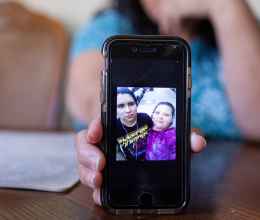
LOS ANGELES - A federal appeals court has denied California's request for an emergency stay of an order requiring the state to provide community mental health services to tens of thousands of foster children and children at risk of being removed from their homes.
In a decision issued late yesterday, the federal appeals court for the 9th circuit said the state must adhere to all provisions of a district court order issued earlier this year, on March 14. The federal district court in Los Angeles said the state must provide comprehensive mental health services that will enable foster children to avoid institutional care. Under the order, the state had 120 days from the date of the order to begin providing this care.
The state has appealed the district court order and sought an emergency stay of the decision pending its appeal.
"The appeals court summary rejection of the state's request for delay sends a strong message that California must act now to provide services to thousands of foster children so they may return home to more stable and nurturing care," said Patrick Gardner of the National Center for Youth Law, and co-counsel in the case.
The district court order came in a three-year-old class action lawsuit known as Katie A. v. Bonta, which challenges the longstanding practice of confining abused and neglected children in costly hospitals and large group homes instead of providing services that would enable them to stay in their homes and communities.
"California's foster youth with unmet mental health needs are our state's most vulnerable children," said Melinda Bird, managing attorney of Protection & Advocacy, Inc. "They need access to individualized care in the most home-like setting possible. Federal law, and good child welfare practice, require nothing less."
More than 80,000 children are in foster care in California. Various studies find that from 70 to 84 percent of them experience a mental health problem. The state's current approach to addressing their needs through institutional care is costly. For example, it is spending $540 million each year to maintain 4,500 children in high-level group homes-placements that experts testified could be avoided by offering appropriate services in the community.
District Court Judge A. Howard Matz, in his March 14 order granting a motion for preliminary injunction, found "substantial evidence" that the two key services he instructed the state to provide, wraparound services and therapeutic foster care (TFC), "actually save the state money, compared to alternatives involving institutionalization." Adding these services to California's Medi-Cal program will also bring in additional dollars because the federal government reimburses the state for about half of the cost.
Several California counties currently provide these services to some children, but fall far short of meeting the need. Nationally, almost half of state Medicaid programs cover TFC, and several Medicaid programs also cover wraparound services.
During 18 months in the foster care system, "Nancy," a teenager, had shuttled through nine different residential placements and 11 psychiatric hospitalizations, including a group home six hours away from her mother. In one group home she was beaten by older girls and in another she ran away and was raped while wandering the streets. She continually attempted suicide but the local child welfare agency eventually told her mother that they could do nothing for Nancy and that the only way she would get the services she needed was through the probation department.
A consortium of state and national public interest groups represents the children, including Western Center on Law & Poverty, Protection & Advocacy, Bazelon Center for Mental Health Law, the National Center for Youth Law, and the American Civil Liberties Union of Southern California, along with the law firm of Heller Ehrman LLP.






